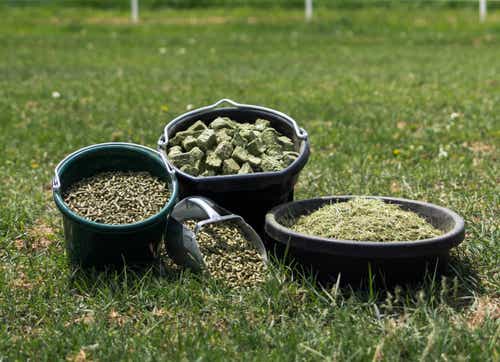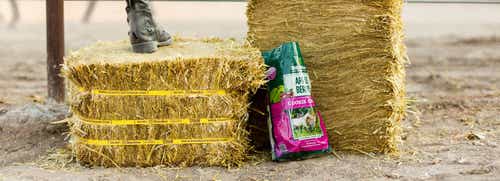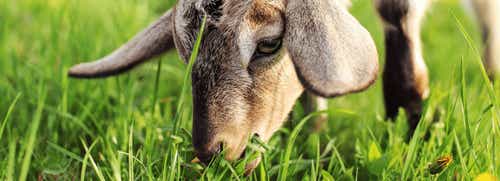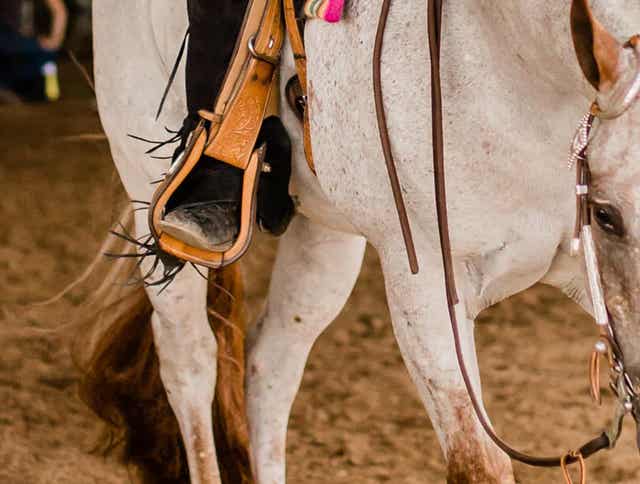
Iron for Horses: Do They Really Need More in Their Diet?
If your horse has ever seemed low on energy, you may have wondered if they are getting enough iron. For years, horsemen have fed iron-containing supplements to gain an edge and “boost energy.” But is this age-old strategy effective? Fortunately, equine nutrition knowledge continues to evolve, and we now have a much better understanding of what iron does for horses, why true iron deficiency is quite rare, and when (if ever) supplementation is needed.
What Does Iron Do for Horses?
Iron is an essential component of hemoglobin and myoglobin, playing a key role in oxygen transport and fueling muscles during work. Iron also supports enzymes, metabolism, and immune function. Without adequate iron, cells can’t carry oxygen efficiently, leading to fatigue and weakness.
Horse Iron Deficiency Symptoms: How Common Is It?
The short answer: iron deficiency in horses is very rare. Most horses easily meet their dietary iron needs through forage and feed. When anemia does occur, it’s usually caused by chronic blood loss from parasites, ulcers, or injury—not from too little dietary iron.
Horses recycle iron from their red blood cells, meeting about 85% of daily iron needs this way. The remaining 15% comes from diet. Iron absorption is tightly regulated by the hormone hepcidin—when dietary iron is high, absorption decreases, and when intake is low, absorption increases (Kiełbik et al. 2025). This helps prevent both deficiency and overload.
How Much Iron Do Horses Need Daily?
According to the National Research Council (NRC), an average 1,100-lb adult horse needs about 400 mg of iron per day, or approximately 40 mg/kg of dry matter intake (NRC 2007). Most horses consume more than this from forage alone.
Quick Answer
An average horse needs ~400 mg of iron daily, but most horses easily consume 2,000+ mg from forage, feed, water, and soil.
Natural Sources of Iron for Horses
- Forage: Grass hay contains ~200–300 mg/kg; alfalfa ~300–400 mg/kg.
- Soil ingestion: Horses grazing or eating hay from the ground consume additional iron from soil.
- Water: Well water or high-mineral water often contributes substantial iron.
- Concentrates: Commercial feeds typically contain 50–250 mg/kg added iron. Cereal grains naturally contain 50–100 mg/kg.
Iron and Insulin Resistance in Horses
There’s a growing discussion about whether excess dietary iron contributes to insulin resistance (IR) and equine metabolic syndrome (EMS). Some studies have shown higher ferritin levels in insulin-dysregulated horses (Kellon and Gustafson 2020). However, it’s unclear whether insulin resistance causes iron retention or vice versa.
Importantly, a study of nearly 2,000 healthy racehorses consuming 5–10x their daily iron requirement found no link between dietary iron and insulin resistance (McLean et al. 2022). At this time, excess iron alone does not appear to cause IR. For horses with IR or EMS, focus on proven interventions: weight management, exercise, and controlling soluble carbohydrate intake.
When (and When Not) to Supplement Iron
Situations where iron supplements may be justified include:
- Veterinarian-diagnosed true iron deficiency anemia
- Recovery from surgery with significant blood loss
- Chronic bleeding issues (e.g., severe ulcers, heavy parasite load)
In most cases, feeding iron-containing “blood-builder” supplements to “boost energy” is unnecessary and may even be harmful. Excess iron can interfere with copper and zinc absorption, causing nutrient imbalances. Very high, long-term intake can also stress the liver.
If you’re considering the best iron supplement for horses, always consult a veterinarian first.
Balanced Nutrition Through a Forage-Based Diet
High-quality forage should always be the foundation of a horse’s diet. If forage quality is unknown or inconsistent, incorporating premium Western hay products like those from Standlee helps ensure horses receive minerals in a natural, balanced way. Forage-first feeding also supports broader vitamin and mineral needs for horses - not just iron.
Final Takeaways
- Iron deficiency in horses is rare.
- Most horses meet or exceed iron needs with a forage-based diet and water.
- There’s no evidence that excess dietary iron causes insulin resistance.
- Supplement only when prescribed by a veterinarian or equine nutritionist.
Looking to build a better baseline diet for your horse? Explore Standlee’s premium forage products and keep your horse fueled the natural way.
Frequently Asked Questions
Can horses be iron deficient?
Rarely. Usually only with chronic blood loss.
Should I give my horse an iron supplement?
Not unless a vet diagnoses deficiency. Forage-based diets usually provide plenty.
What is the best iron supplement for horses?
Only what your veterinarian prescribes after testing confirms deficiency.
Should I be concerned about iron in my insulin resistant horse’s feed?
Generally no—most forage and feeds are safe. Avoid extra iron supplements unless prescribed.
References
- Kellon EM, Gustafson KM. Possible dysmetabolic hyperferritinemia in hyperinsulinemic horses. Open Vet J. 2020;9(4):287-293.
- Kiełbik P, Witkowska-Piłaszewicz O. Iron Status in Sport Horses: Is It Important for Equine Athletes? Int J Mol Sci. 2025;26(12):5653.
- McLean NL, McGilchrist N, Nielsen BD. Dietary Iron Unlikely to Cause Insulin Resistance in Horses. Animals. 2022;12(19):2510.
- NRC. Nutrient Requirements of Horses, 6th ed.; National Research Council of the National Academies: Washington, DC, USA, 2007.

